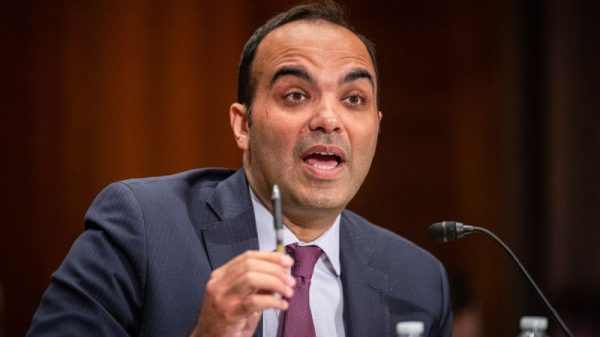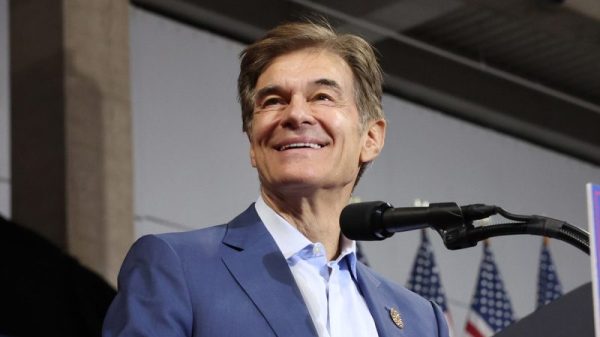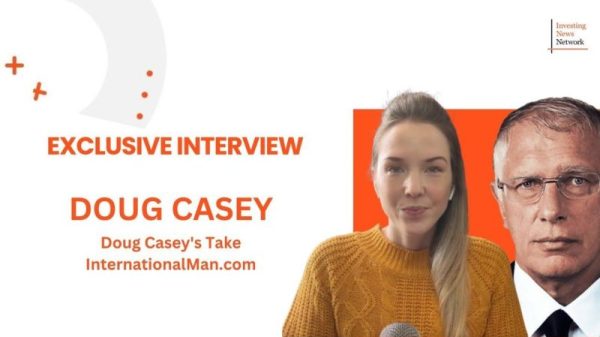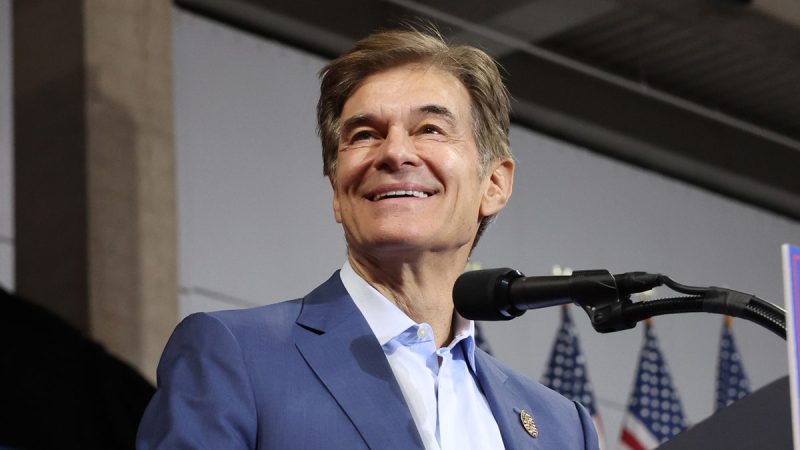Dr. Mehmet Oz, nominated by President-elect Trump to be the next CMS administrator, will have his hands full when he takes the reins of our agency that provides health insurance for over 140 million Americans and accounts for one quarter of the nation’s budget. Through bold and principled leadership and effective communication, he holds the potential to make a positive, lasting difference.
It’s no secret our health care system is broken. We continue to spend more and more money without any clear return on investment when it comes to our nation’s health and well-being. In fact, nearly 50% of Americans live with one chronic health condition, such as diabetes, hypertension, or obesity.
And when it comes to children, one study predicts that over 220,000 people under the age of 20 will have type 2 diabetes by 2060, an increase of 700%.
Pair these findings with skyrocketing physician burnout and health care workforce frustration and retention issues in the face of an ever-increasing need for these professionals, and we are headed for serious trouble unless tangible changes are made.
CMS’ work is crucial to Robert F. Kennedy Jr.’s pledge to ‘Make America Healthy Again.’ There are several key areas that Dr. Oz can focus on to play a role in this mission as CMS administrator.
For most physicians who see patients, the number of computer clicks and extensive documentation now required during even routine patient visits has become astounding. It consumes and replaces valuable direct patient-doctor interaction time and has progressively eroded satisfaction on both ends.
Treating patients – not computers – should be what most time is focused on during any health care encounter and will always be critical to optimal health care. This means removing burdensome documentation requirements, restoring care efficiency, and streamlining the current number of ‘quality’ metrics – which in 2018 numbered 788 being used in CMS quality, reporting and payment program – to the very few deemed most important to patients and their care teams.
The government should also remove regulatory barriers that limit where and how patients receive the care they deserve. For example, Oz and his team should work with Congress to remove any telehealth restrictions based on geography. If you live in one state but travel to another for care, you should be able to follow-up with that health care team via telehealth without restriction.
Additionally, there should be no prohibition on patients using their home to engage with their physician via a telehealth appointment. CMS’ ‘hospital at home’ waiver should also be extended or even made permanent, allowing patients to receive acute care in the comfort of their own home. Hospitals can be incentivized to develop these programs, which have been shown to lower complications and reduce cost of care by 30% or more.
In short, ensuring that the right patient receives care from the right person in the right place at the right time is essential. This singular improvement would have a dramatically positive effect on health care access, efficiency, quality and cost.
Optimizing health and the outcomes patients achieve for their dollars – and frankly, our tax dollars – that America spends remains crucial to ‘fixing’ health care. Much of this can be accomplished via improved incentive alignment and competition, which breeds excellence and innovation.
First, the ban on physician-owned hospitals, a nonsensical rule embedded in the Affordable Care Act, should be lifted. This will help address ongoing concerns related to consolidation, which has the potential to lower costs and improve care quality, placing patients back ‘front and center’ above paperwork and bureaucracy.
Second, not only should there be improved oversight of price transparency compliance, but Oz and his CMS team should work closely with Congress to ensure that price transparency regulations are codified. This will signal ‘staying power’ of these price transparency rules, encouraging entrepreneurs to find pragmatic solutions that make such information more patient-friendly and empower patients to more effectively ‘shop’ for non-emergent goods and services.
Third, health care payments must move away from a bureaucratic fee-for-service approach (i.e., each time a doctor does something, they get paid a government-driven amount, irrespective of the outcome) that differs only on where a patient receives care (i.e., more money for hospital setting than an ambulatory setting). Transforming health care means more routinely collecting and incentivizing the outcomes most important to patients and most appropriate to patient well-being.
Fourth, Medicare Advantage now covers more than half of all Medicare eligible Americans. It is not going anywhere. Implementing an improved competitive bidding payment model and reforming prior authorization are two ways in which patients may receive better care at a lower cost.
CMS and its innovation center should focus on streamlining its novel payment and care delivery model demonstrations. As much flexibility as possible should be left to the discretion of local care teams, while ensuring these models are rolled out in an efficient manner with appropriate support when needed. More quickly granting waivers for both Medicare and Medicaid for states to better serve local markets could drive tangible savings and improve health, especially for an aging population often with chronic disease and for historically marginalized Americans who often face challenges in accessing high-quality care.
In addition, we must do far better about recruiting and retaining the best and brightest into health care. This requires taking innovative approaches to re-investing savings achieved through many of the policy options noted here into improving training programs, preserving the viability of our academic medical centers responsible for training the future clinicians, supporting their research endeavors that lead to ground-breaking breakthroughs, and adjusting physician and workforce fees to better mirror inflation.
Lastly, Medicare and Medicaid loses over $100 billion annually in fraud and abuse. Using AI to help screen and identify possible abuse and fraud is crucial to saving American taxpayers from wasteful spending.
American health and health care need an overhaul. As Oz begins his term as CMS administrator, we have an opportunity to better deliver on the promise of Medicare and Medicaid for those who truly need it without continuing the out-of-control spending that has been detrimental to the future of this country. In fact, it’s a must if we want to ‘Make America Healthy Again.’
Christopher W. DiGiovanni, MD is a Professor of Orthopaedic Surgery at Harvard Medical School and Chief Emeritus of the Foot & Ankle Service at Massachusetts General Hospital. He is a past President of the American Orthopaedic Foot & Ankle Society (AOFAS).
The opinions, thoughts, and ideas expressed in this article are those of the authors only and not necessarily those of any employers or institutions of which they are affiliated.





























